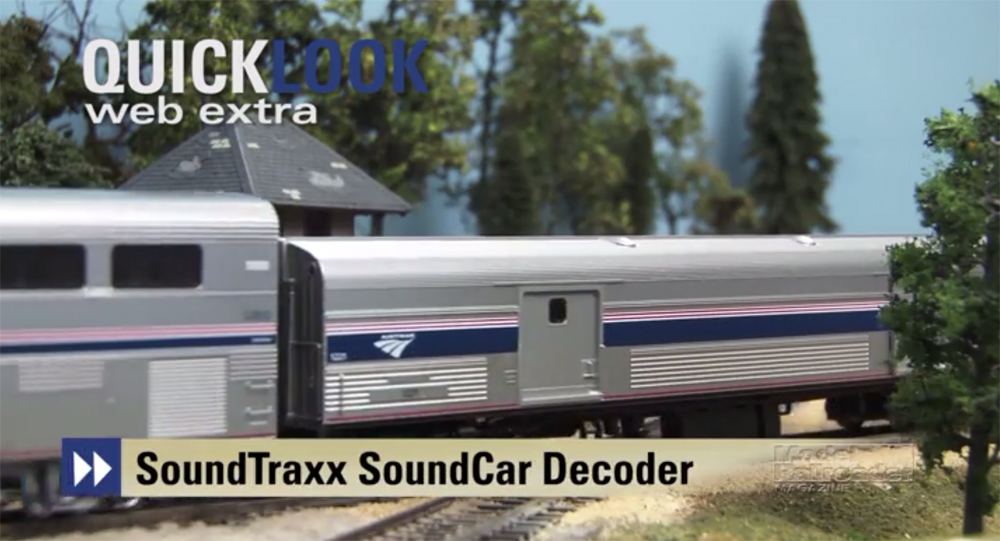
The SoundTraxx Tsunami SoundCar is a Digital Command Control decoder that brings the sounds of the train beyond the locomotive to a model train layout. In this video, Model Railroader senior editor Dana Kawala gets a demo of the SoundCar with George Bogatiuk of SoundTraxx. Listen to various SoundCar installations in freight and passenger equipment […]
Read More…
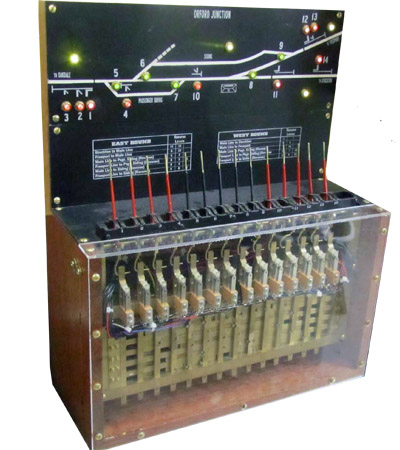
Interlocking machine The intricacies of interlocking plants have fascinated me since I read Model Railroader’s “Mechanical interlocking and signaling” series in 1961. In that series, MR’s Gordon Odegard and Paul Larson explained how they scratchbuilt a miniature interlocking machine that included operating finger-size levers for Paul’s HO layout. It took me almost 50 years to […]
Read More…
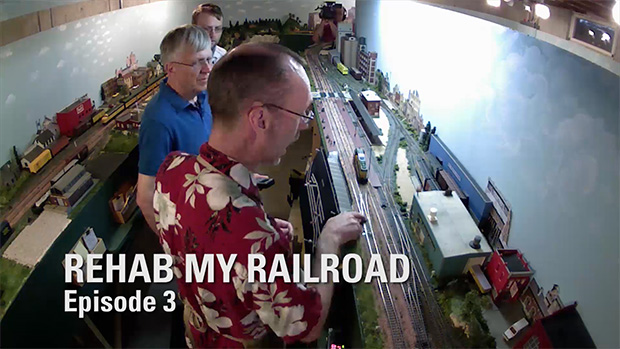
Having trouble viewing this video? Please visit our Video FAQ page Host Drew Halverson and layout owner Chuck Sable return to the basement for this third episode of Rehab My Railroad! MR’s Cody Grivno paves over his roadway project, while MRVP’s David Popp digs into a pesky turnout problem. And don’t miss the “Ask […]
Read More…

Having trouble viewing this video? Please visit our Video FAQ page Host Drew Halverson and layout owner Chuck Sable return to the basement for this third episode of Rehab My Railroad! MR’s Cody Grivno paves over his roadway project, while MRVP’s David Popp digs into a pesky turnout problem. And don’t miss the “Ask […]
Read More…
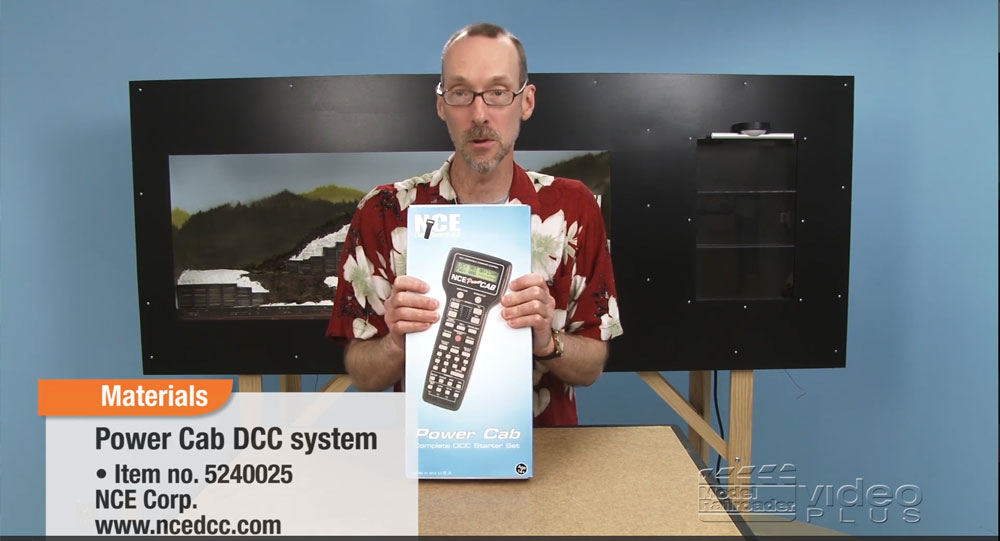
MRVP’s David Popp takes a casual approach to installing a Digital Command Control (DCC) system on our Olympia Logging Co. display-style layout. Follow along as David guides you from opening the NCE starter system box to adding a wiring bus to watching trains run on the On30 layout! […]
Read More…

MRVP’s David Popp takes a casual approach to installing a Digital Command Control (DCC) system on our Olympia Logging Co. display-style layout. Follow along as David guides you from opening the NCE starter system box to adding a wiring bus to watching trains run on the On30 layout! […]
Read More…
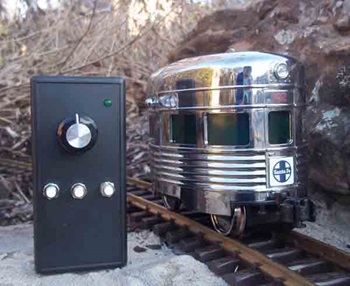
Mark and Vince Buccini’s series of articles titled “Build your own wireless DCC system” ran in the April, June, and August issues of Garden Railways. It’s been the most-talked about series we’ve done in many years, but it’s also had the most questions. We’re providing the complete set of articles, along with a correction, and […]
Read More…
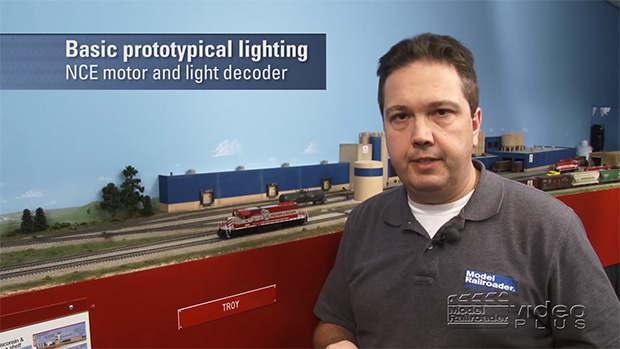
Having trouble viewing this video? Please visit our Video FAQ page In this episode of DCC Programming, host Dana Kawala shows how programming lighting effects into your DCC-equipped diesel locomotives can enhance their realistic appearance and prototypical operation. Dana demonstrates effects that can be used on a variety of diesels from a wide range […]
Read More…

Having trouble viewing this video? Please visit our Video FAQ page In this episode of DCC Programming, host Dana Kawala shows how programming lighting effects into your DCC-equipped diesel locomotives can enhance their realistic appearance and prototypical operation. Dana demonstrates effects that can be used on a variety of diesels from a wide […]
Read More…
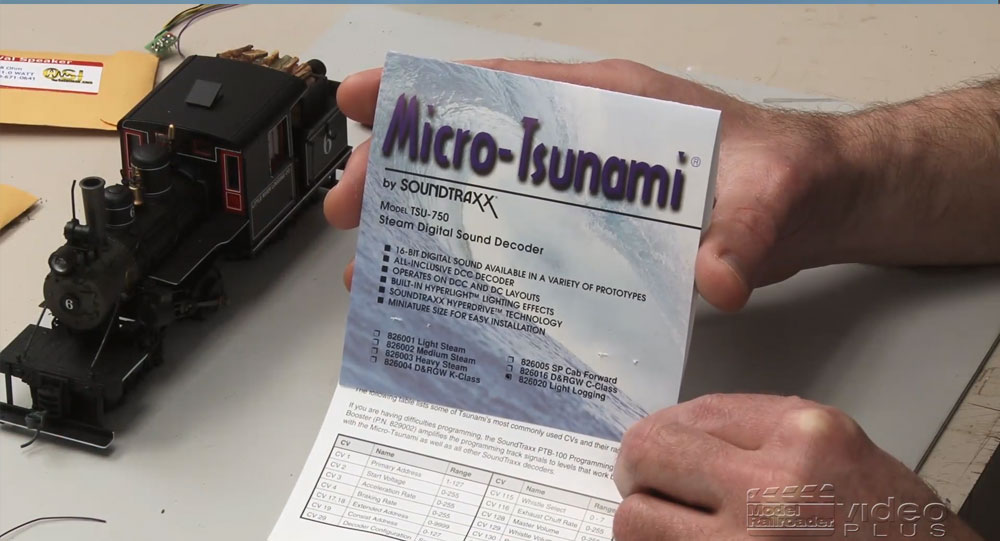
We wanted our On30 Olympia Logging Co. display-style layout to sound as impressive as it looks, so David Popp decided to install a DCC sound decoder in our Bachmann Climax workhorse. Follow along as he shows how to disassemble the locomotive, solder the decoder and speaker wires, position and test the unit, and then re-assemble […]
Read More…

We wanted our On30 Olympia Logging Co. display-style layout to sound as impressive as it looks, so David Popp decided to install a DCC sound decoder in our Bachmann Climax workhorse. Follow along as he shows how to disassemble the locomotive, solder the decoder and speaker wires, position and test the unit, and then re-assemble […]
Read More…
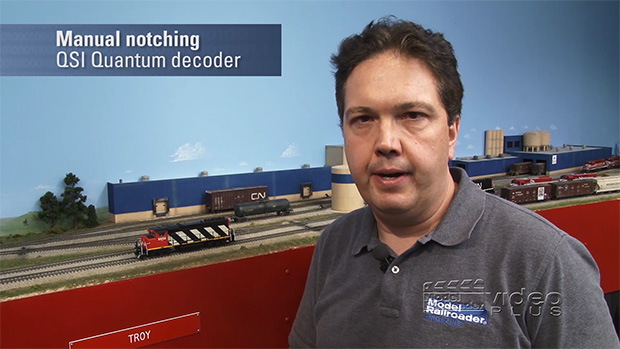
Having trouble viewing this video? Please visit our Video FAQ page Modern sound decoders have made it possible for your model locomotives to sound just like the real thing. In this episode, DCC Programming Series host Dana Kawala shares a few ways to tweak the sound effects to further enhance the realistic operation of […]
Read More…








